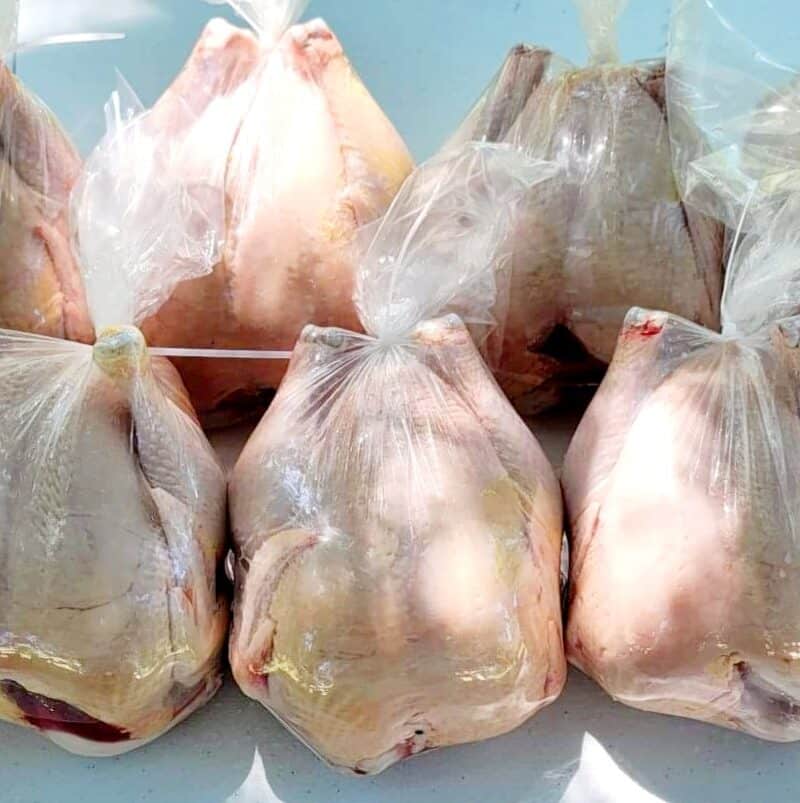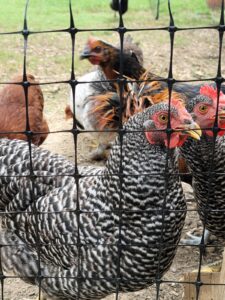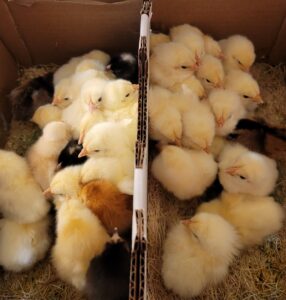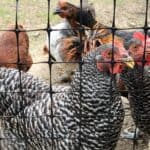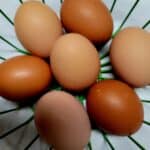Raising meat chickens is an excellent step towards self-sufficiency. The ability to produce your own meat is a valuable skill that can benefit anyone. Luckily, raising chickens for meat is very easy. The hardest part is investing in the equipment needed to process the chickens.
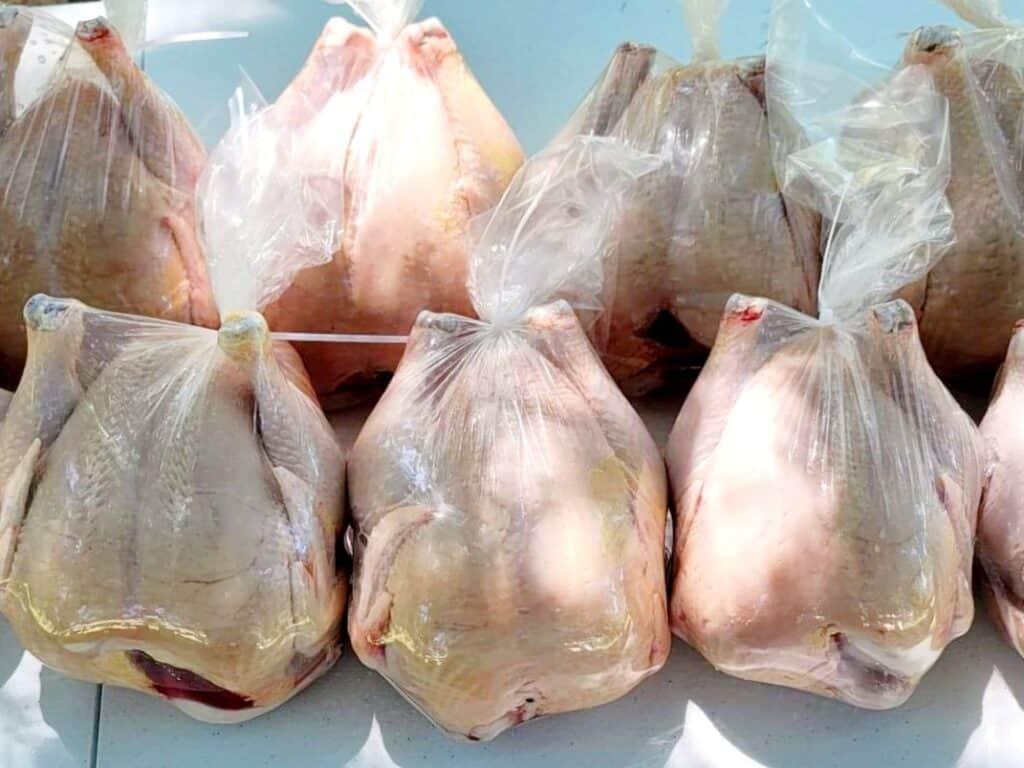
Backyard chicken flocks have become more and more popular in recent years. More homesteaders are wanting to become more self-sufficient in growing and raising their own food.
For good reason too. The food that is grown and raised in your backyard is far better and healthier than most of what you can get from your local grocery store.
On our homestead we raise chickens for both eggs and meat. I can honestly say that those two decisions have been some of the best decisions we have made for our family. Knowing that you are able to produce meat in your own backyard is very reassuring.
Especially in times like now where there have been food shortages. In this post I aim to help you learn how to get started raising chickens for meat in your own backyard.
If you are looking to start raising chickens for eggs here is a great post to get you started.
Getting Started
When my husband and I decided to start raising meat chickens we started by first purchasing the equipment needed to process the chickens. I would recommend starting here too.
The last thing you want is to have chickens that are ready to be processed, and you don’t have the equipment to process them. Sure, you can hand pluck, but if you are having to hand pluck 30 or more chickens, it is going to take a long time.
Here is some of the equipment that we find helpful on processing day.
- Plucker- this is an investment that is well worth it and will save you so much time
- Scalder- you will also need a propane tank to run the scalder
- Thermometer- to check the temperature of the scalder
- Cones- for bleeding the chickens out
- Sharp knives- for killing the chickens and breaking down the chickens
- Tables- I would recommend at least two tables for working on. Having a table with a sink is very handy.
- Large trash can or two for holding the chickens in ice water
- Water hose- at least two
- Poultry Shrink bags
Choosing the Right Breed of Chicken for Meat
There are many different breeds of chickens that are great for meat. Many of the chicken breeds are dual purpose, meaning they are great for egg layers and meat chickens.
You will need to take in consideration that not all chickens will grow at the same rate or taste the same. Some chicken breeds are also larger than others.
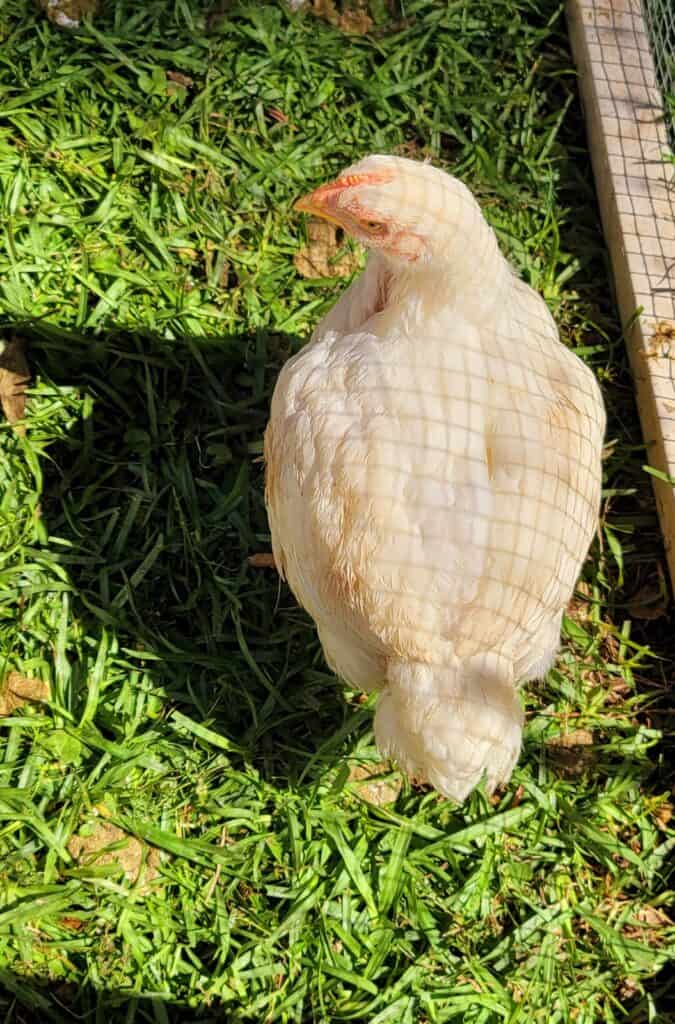
I would highly recommend researching different breeds to figure out which one fits your needs. We started with Cornish Cross chickens because of their fast growth rate, size and taste.
So far, we have had great success with growing this breed of chickens.
Because they are not a sustainable breed, we are starting to transition to breeds that are more dual purpose so that we can begin hatching our own meat chickens.
A few popular types of meat chickens are:
- Cornish Cross
- Freedom Ranger
- Leghorns
- Buff Orpington
Another thing to consider when choosing a chicken breed is the amount of time it will take to grow the chicken for processing. Not all breeds will grow at the same rate which means that processing times differ.
The Cornish Cross breed is known for its fast growth rate which puts the processing time anywhere from 8 to 10 weeks. This is one reason why this breed is so popular.
Brooding
When you receive your baby chicks you will need to keep them in a brooder for the first week or longer. Depending on the temperature outside.
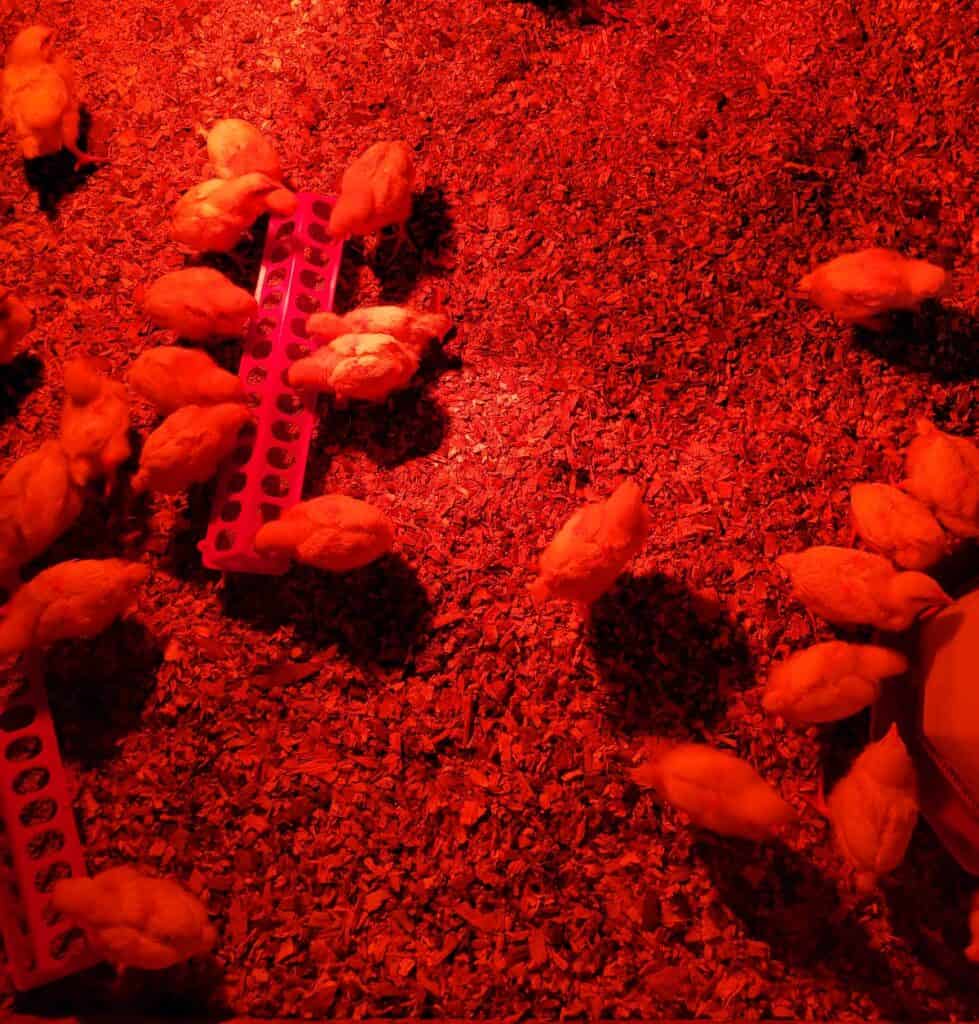
You can build a brooder or use a large, galvanized tank or tub. Be sure to use a brooder that is large enough for all of the chicks. Meat chickens grow much faster than egg layers so you will need to make sure the brooder is sufficient.
We use a brooder room outside with heat lamps hanging from the ceiling. This has been a great brooder, easy to clean and plenty of room to grow the chicks until they are ready to go outside in the chicken tractor.
Here is my post on Raising Baby Chicks where I go into more detail on how to properly care for them.
Chicken’s Living Quarters
Eventually the chickens will grow large enough to move them out of their brooder. You can put them in a coop or in a chicken tractor. Ideally you will want to give them enough space and fresh grass to forage on.
The more they are able to move around comfortably and graze on fresh grass the happier they will be. Chickens that are given enough space to move comfortably are less stressed, which makes healthier chickens.
Allowing your chickens to graze on fresh grass will also produce healthier chickens. This may also cut down on some of the cost of chicken feed.
We like using a tractor for our meat chickens. This allows us to move them once or twice a day onto fresh grass instead of leaving them in a static coop.
Meat chickens eat a high protein diet which means they poop a lot more than egg laying chickens. Being able to move them cuts out having to clean and refresh often.
However, you can raise meat chickens in a static coop just be sure to keep it clean to prevent illness and parasites.
Feeding Meat Chickens
As mentioned earlier, meat chickens require a high protein diet. For the first week they need a medicated or non-medicated chick starter feed that is at least 20% protein.
I recommend a medicated feed to help give them a good healthy start. The medicated chick started can help prevent your baby chicks from contracting an intestinal infection call Coccidia.
After the first week they will need to start eating a meat bird crumble. It is also recommended to give them grit to help with digestion.
For our Cornish Cross chickens, we stick with the feeding schedule of 12 hours on and 12 hours off after the first week. This prevents the chickens from overeating and developing health issues.
Which Cornish Cross are known for. For other breeds you may choose a different feeding schedule.
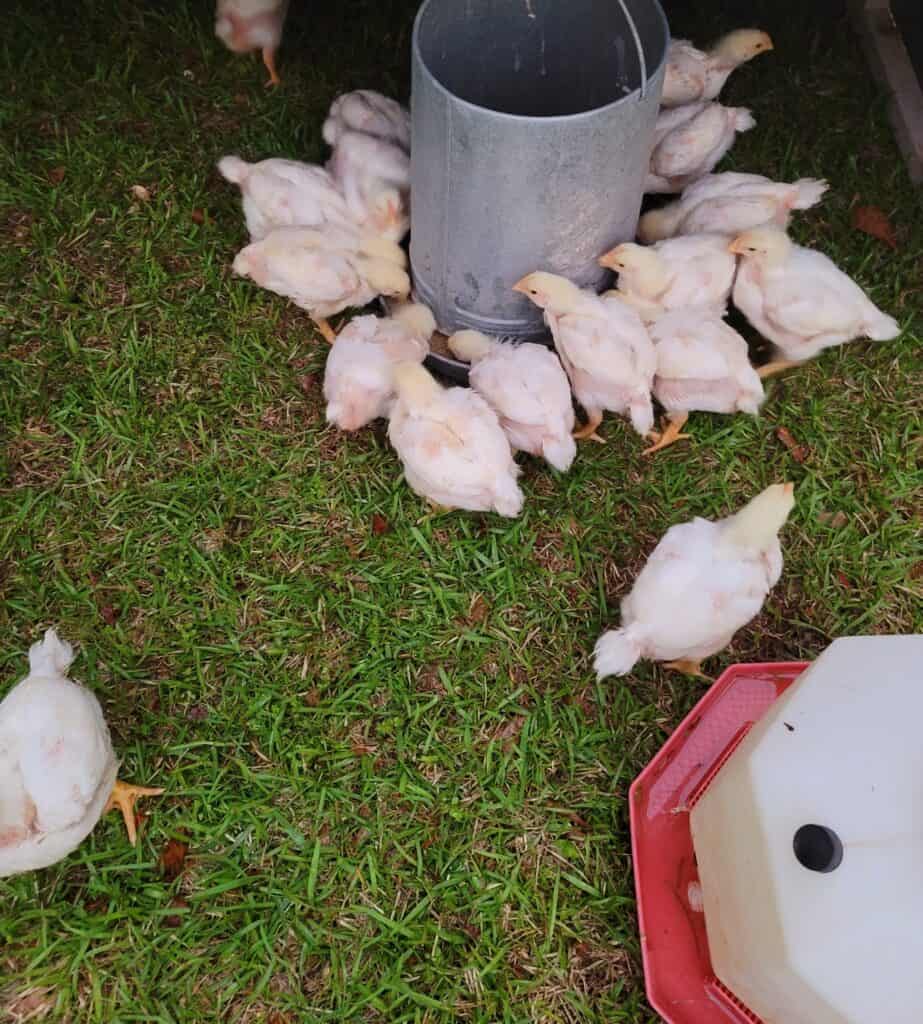
I would also recommend getting a large feeder and waterer for your meat chickens. Depending on the amount of meat birds you are raising it may be smart to get two to prevent them from fighting and getting stressed out.
As always keep clean fresh water for your chickens.

